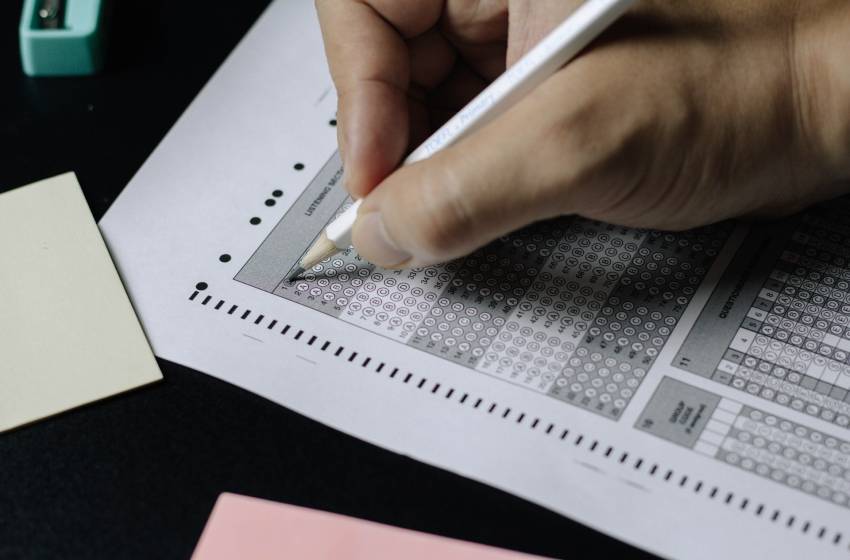Exam times are tough gruelling times. They extract every ounce of energy and vitality out of you. Examinations are not difficult, but preparing for them is a task that all students, be it a studious or non-studious, topper or mediocre, dread. Preparing for the exam cannot be avoided under any circumstances, but some invaluable tips should make it a less tedious process.
Tip 1 – Time Table
Make a timetable, giving each subject time and ample time for revision and re-revision. Allot time according to the syllabus of the subject as well as your comfort level in it. A subject that you find difficult should get more attention and time, and the others can get a little less time. But do not miss out on any of them.
Tip 2 – Revise
When you have completed a chapter or a subject completely, come back to it after two days and revise. Your brain functions in a way that requires revision after the first study within the next 48 hours. After the first revision, again come back to it after a gap of around ten days and see how much you remember. A chapter or subject should ideally be revised at least thrice before the test.
Tip 3 – No continuous studying of a single subject
It is better to not continue studying the same subject throughout the day. After a couple of chapters, move on to another subject. This will not tire your memory and you will be able to absorb more. Studying the same subject all day will exhaust you.
Tip 4 – Change Subjects
Also, do not study the same subject for days. Keep switching – from a difficult to a less difficult one, to the easy one.
Tip 5 – Take Breaks between Chapters
After you finish one chapter, take a five-minute break. This will help that material get absorbed within you. And provide space in your grey cells to study the next chapter. This break is essential to break monotony and loss of concentration. If you follow this, you will notice that your capacity to remember has improved.
Tip 6 – No Study Till Late
Exam time does not mean you study till the wee hours of the morning. Do not disturb your body clock by a huge margin. Set a time limit for studies and then rest. If you are one who can study at night, then make sure to make up for the sleep during the day.
Tip 7 – Jot Down
Make a chart for yourself. In that jot down important facts, definitions, dates if any that you need to remember, formulas, etc. and then put it up somewhere in your room where it will get constant attention. A good place to stick it is above the bed or study table. You can make 2-3 copies of each chart and put them up at various places. By this, you will always have these in front of you and will not have to refer to your books in case you think you have forgotten something. Also, you will remember them by heart by the time your exam starts.
Tip 8 – Make points
While studying a particular chapter or subject, keep a notebook handy. Make pointers in this. You may sum up a chapter, note down important facts or just provide a list. This will give you a clear idea of what you have studied. During revisions, you can just flip through this and remember all that is there in any chapter. In case you have forgotten the details, then you can refer to the books. For the final revision, this is extremely significant.
Tip 9 – Address Doubts
If you cannot understand anything, or you have a doubt, do not leave it unaddressed. Ask your teachers, or parents or peers immediately.
Tip 10 – Avoid Selective Study
Try to avoid selective study. There may be chapters that you find difficult to remember or not like. At least make points and know the basics of these chapters. There is a compulsory section in every examination. The marks allotted for this section may be less, but it is scoring and you can always avoid losing out where you can score full marks. A couple of marks can either qualify or disqualify you.
Tip 11 – Decide Pattern of Study
Different people have different ways of studying. Decide what condition suits you the best. Do not follow peers. The best mode of study is the most comfortable method for you. Whatever suits you – studying alone, in groups, aloud, while listening to music, etc, adopt it. It will benefit you immensely.
Tip 12 – Solve Question Papers
Get hold of question papers of the last five years and allot time to solve them. If you cannot solve a particular one, ask immediately. This will help in revision and also test your level of preparation. It will also hint at those topics or subtopics that you may have left out.
Tip 13 – When Tired, Sleep
There is no use in studying if you cannot keep your eyes from shutting, your mind from switching off, and your head from dropping. If you are tired or sleepy, just close the books and sleep. Wake up refresh and then get back to studies afresh.

